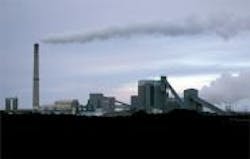Senator Reid throws cap and trade aside
The hopes that a cap-and-trade bill would pass through Congress have taken a big hit in the past week as Sen. Harry Reid pulled the provision out of the Senate’s energy bill, citing a lack of support for the measure before the Senate’s August recess.
That is good news for trucking, many believe. The thought is that the effects of the measure would drive up fuel prices.
The idea behind cap and trade is to limit emissions. I don’t think anybody, me included, is against that. Under cap and trade, companies that emit fewer emissions than the set levels would receive credits that they could in turn sell to companies that exceed the levels. Those companies, by purchasing the credits, would then fall into compliance.
The issue I have with this scenario is the cost. No company is going to absorb the cost to buy the credits. That money is going to be passed along to consumers in the form of higher prices. And as long as credits are available to be purchased, there is little incentive for companies to reduce the pollution. That’s why many in the trucking industry believe the ultimate result of cap and trade would be higher diesel prices while also questioning whether the bill will in fact reduce emissions.
A lot of people would make money on cap and trade, unfortunately, none of them would be consumers.
The Senate bill was expected to follow the House version, the American Clean Energy and Security Act, passed in late 2009. That version drew criticism from many, including Con-way and Schneider National.
According to C. Randal Mullett, vice president-government relations & public affairs for Con-Way, one of the biggest problems with the cap-and-trade program is that it is unfair to the trucking industry, asking trucking to pay a disproportionate percentage of the costs while delivering no benefits or concessions in exchange, such as those being offered to the coal-fired utilities.
“If transportation does not get allowances like the other segments [of the economy], we have no choice but to oppose it,” Mullett told Fleet Owner.
Schneider issued a formal statement last year that claims the money spent on cap and trade would damage the economy.
“We believe that a carbon cap and trade program would further weaken the economy, misallocating resources better allocated by the markets,” the statement said. “The creation of wealth would be inhibited, and it is just such wealth that, in the past, funded and sustained the tremendous improvements in air and water quality our country has achieved over recent decades. We at Schneider remain committed to responsible environmental stewardship and believe that carbon cap and trade legislation is at best extremely inefficient – and is likely counterproductive – in furthering environmental sustainability efforts.”
For now, cap and trade can be put on the backburner as it seems unlikely that a lame-duck Congress will address the issue until after the mid-term elections.
